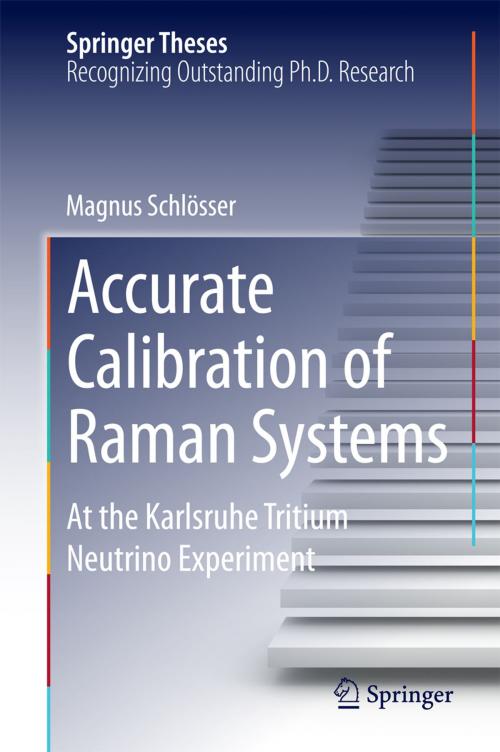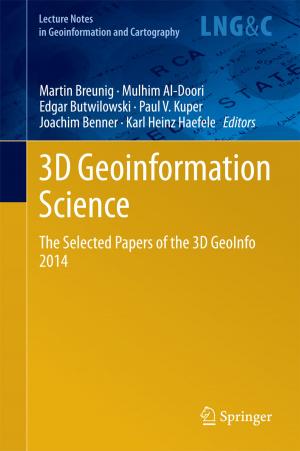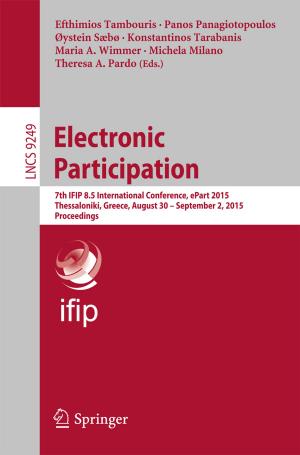Accurate Calibration of Raman Systems
At the Karlsruhe Tritium Neutrino Experiment
Nonfiction, Science & Nature, Science, Physics, Nuclear Physics, Biological Sciences, Molecular Physics| Author: | Magnus Schlösser | ISBN: | 9783319062211 |
| Publisher: | Springer International Publishing | Publication: | May 5, 2014 |
| Imprint: | Springer | Language: | English |
| Author: | Magnus Schlösser |
| ISBN: | 9783319062211 |
| Publisher: | Springer International Publishing |
| Publication: | May 5, 2014 |
| Imprint: | Springer |
| Language: | English |
Neutrinos can arguably be labeled as the most fascinating elementary particles known as their small but non-zero rest mass points to new mass generating mechanisms beyond the Standard Model, and also assigns primordial neutrinos from the Big Bang a distinct role in shaping the evolution of large-scale structures in the universe. The open question of the absolute neutrino mass scale will be addressed by the Karlsruhe Tritium Neutrino (KATRIN) experiment, currently under construction.
This thesis reports major contributions to developing and implementing new laser-spectroscopic precision tools to continuously monitor the isotope content of the windowless gaseous tritium source of KATRIN. The method of choice, Raman spectroscopy, is ideally suited for in-situ monitoring of all six hydrogen isotopologues. In a series of beautiful experiments the author obtained two independent novel calibration methods, first based on a comparison of experimental Raman depolarization ratios with corresponding quantum-chemical calculations, and second on a gas sampling technique. Both methods yield consistent cross-calibration results and, as well as yielding improvements in precision, will be of major importance in reducing systematic effects in long-term neutrino mass measurements. The methods developed in this thesis also have great potential to further broaden the applications of Raman spectroscopy to study extended sources such as in atmospheric physics.
Neutrinos can arguably be labeled as the most fascinating elementary particles known as their small but non-zero rest mass points to new mass generating mechanisms beyond the Standard Model, and also assigns primordial neutrinos from the Big Bang a distinct role in shaping the evolution of large-scale structures in the universe. The open question of the absolute neutrino mass scale will be addressed by the Karlsruhe Tritium Neutrino (KATRIN) experiment, currently under construction.
This thesis reports major contributions to developing and implementing new laser-spectroscopic precision tools to continuously monitor the isotope content of the windowless gaseous tritium source of KATRIN. The method of choice, Raman spectroscopy, is ideally suited for in-situ monitoring of all six hydrogen isotopologues. In a series of beautiful experiments the author obtained two independent novel calibration methods, first based on a comparison of experimental Raman depolarization ratios with corresponding quantum-chemical calculations, and second on a gas sampling technique. Both methods yield consistent cross-calibration results and, as well as yielding improvements in precision, will be of major importance in reducing systematic effects in long-term neutrino mass measurements. The methods developed in this thesis also have great potential to further broaden the applications of Raman spectroscopy to study extended sources such as in atmospheric physics.















